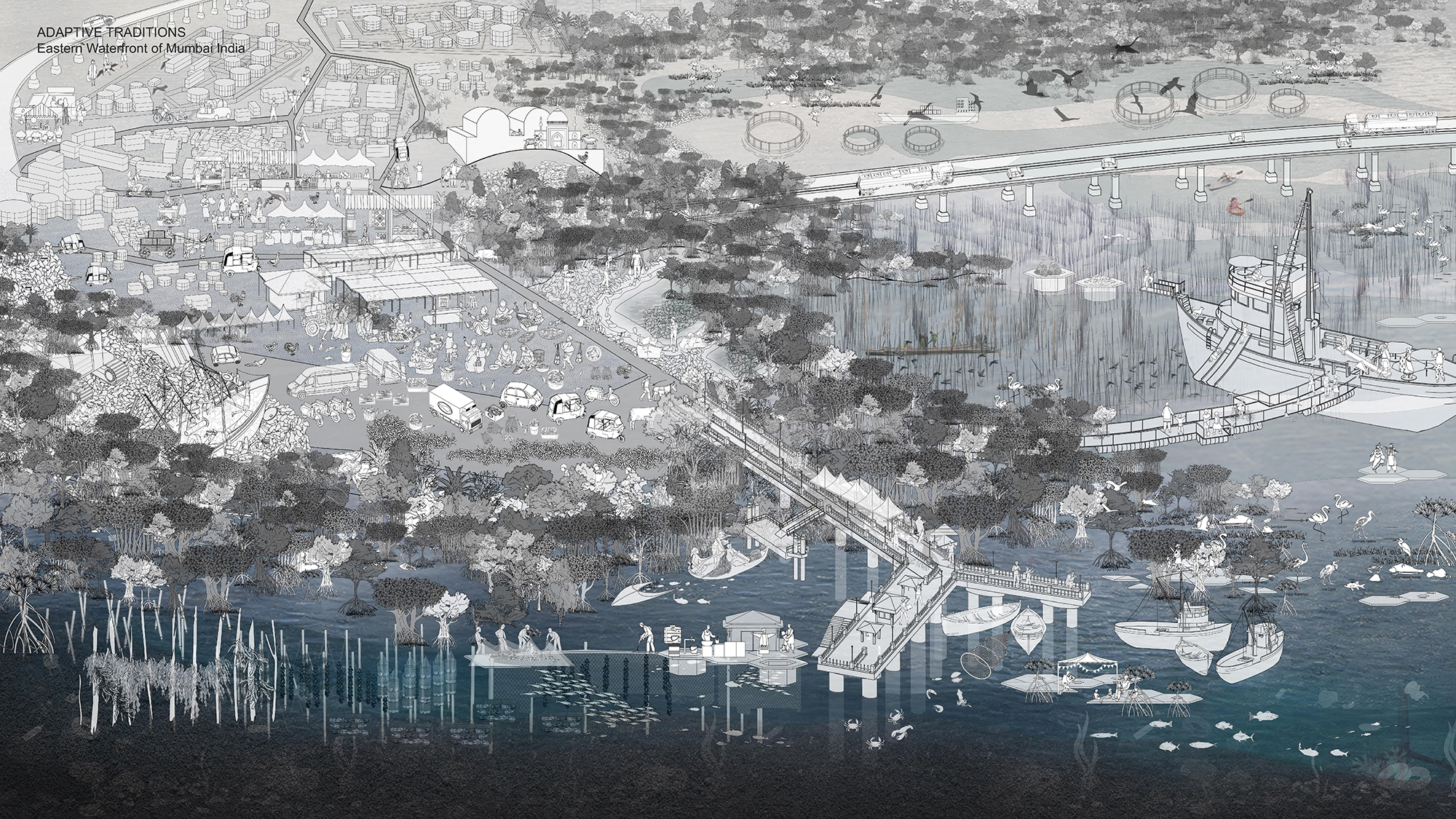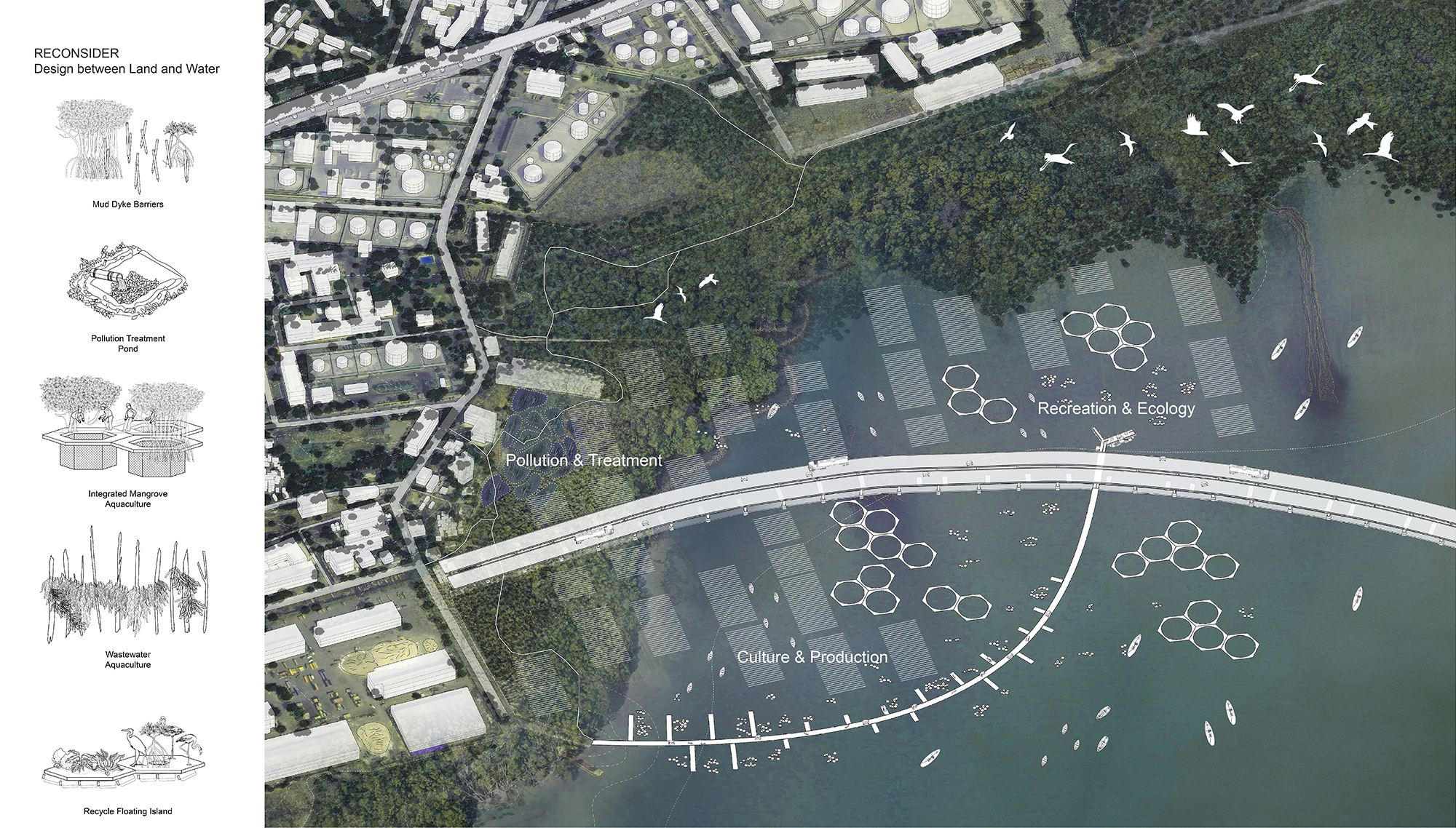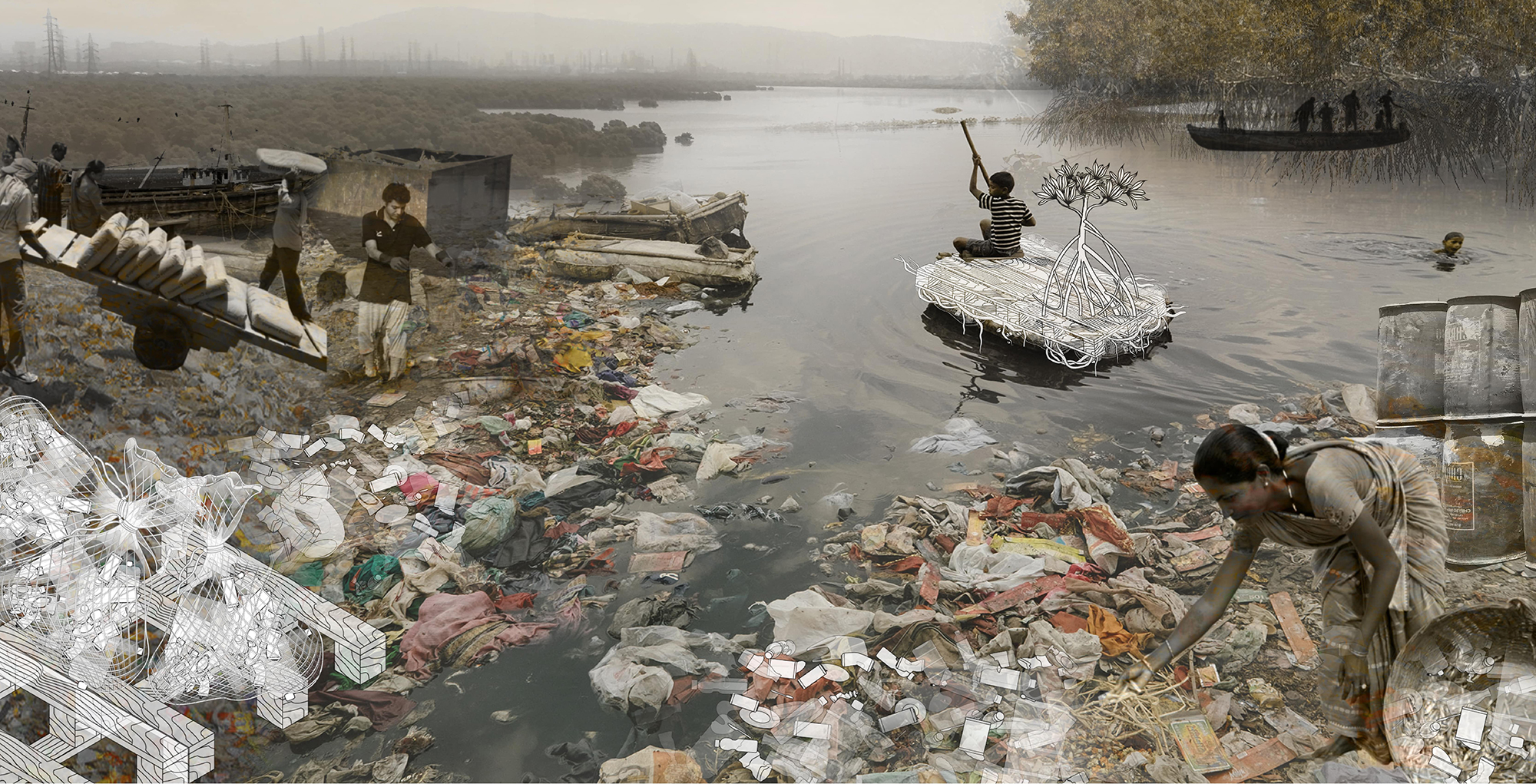
09.09.20 - MLA grad Sing Zixin Chen wins an ASLA Honor Award
Sing Zixin Chen, who graduated from the Daniels Faculty's Master of Landscape Architecture program last semester and quickly landed a job at SvN Architects and Planners, now has something else to celebrate: not only has she been named a winner of an Honor Award in the Urban Design category of this year's American Society of Landscape Architects Student Awards, but an image of her work is on the cover of the September 2020 issue of the society's official publication, Landscape Architecture Magazine.
"I feel very honoured to have been selected, and I really appreciate that my work has been recognized by such a highly professional group of people," Chen says.
Her ASLA-award-winning project was her Daniels Faculty thesis, which she presented in winter 2020. The project proposes a number of carefully considered, low-tech design interventions for the eastern waterfront of Mumbai, the largest city in India.

Sing Zixin Chen.
Chen chose Mumbai because she had visited the city in 2017, prior to starting her MLA studies. "It was a design exchange program," she says. "I spent two weeks there. We studied the waterfront, spoke to residents to gather information about how the area was used, and collaborated with students from Mumbai."
When she began researching Mumbai for her thesis project, Chen noticed that the city's eastern waterfront had a variety of different groups of users, including the residents of a local fishing village, visitors to a nearby 17th-century British fort, birdwatchers attracted by the local flamingo population, and workers at a nearby salvage yard for boats. Her design, she realized, would need to take all these uses into consideration. Her aim was to preserve the site's cultural context and its people’s way of life by building on the waterfront's existing infrastructure in a sustainable, natural way.
Her final design proposal called for a three-phase rehabilitation of the shoreline, starting with the construction of a dike to control erosion. A treatment pond and waste collection area would remove pollutants from the water, setting the stage for phase two: the introduction of aquaculture systems, which would allow locals to grow their own algae, seaweed, kelp, and shellfish. Mangroves would flourish in the purified water, which would attract fish for locals to catch, restoring some of the area's traditional fishing economy.


Top: A section showing Chen's proposal for aquaculture along Mumbai's eastern waterfront. Bottom: Chen's site plan.
In the final phase of Chen's proposed redesign, locals would use salvaged plastics to create an archipelago of artificial floating islands, which could be used as platforms for agriculture, commerce, or community events.

Gathering waste materials for use in the creation of floating islands.
Chen's project was the only Daniels Faculty student project to be recognized by ASLA this year. "This is a very competitive award," says Chen's thesis advisor, associate professor Liat Margolis. "The fact that her drawing was used for the cover of a national professional magazine is an enormous accomplishment and a testament to Sing's brilliant work."
Top image: A drawing of the Mumbai waterfront, showing Chen's proposed design interventions.

